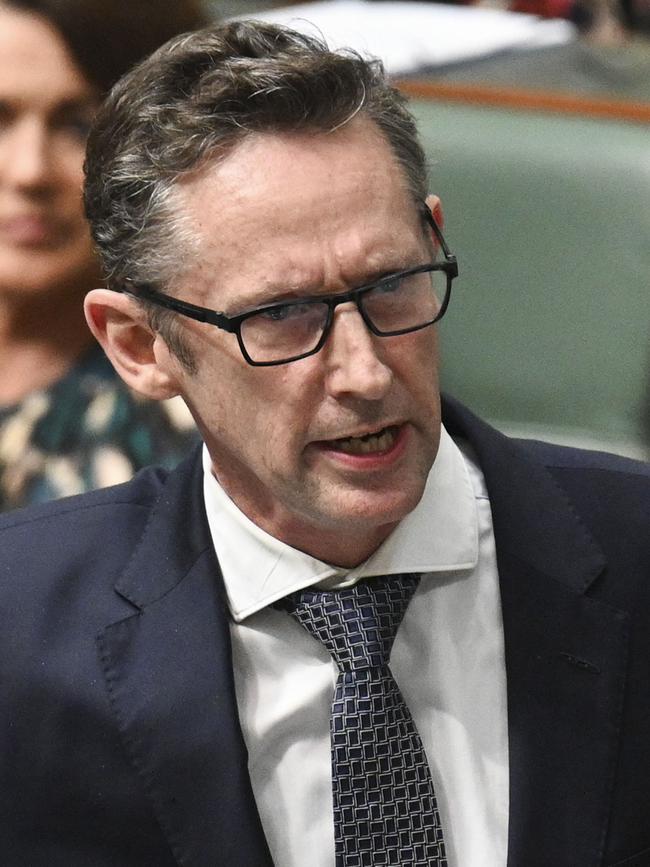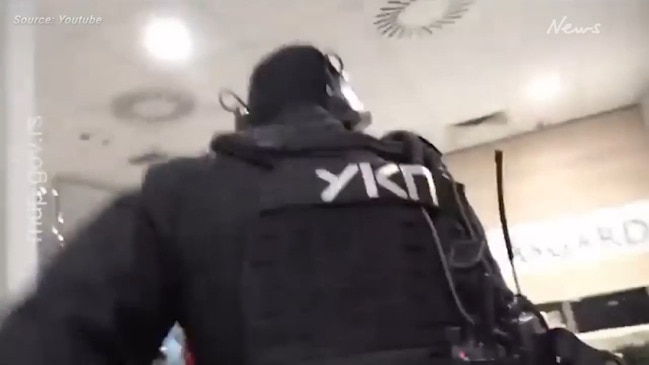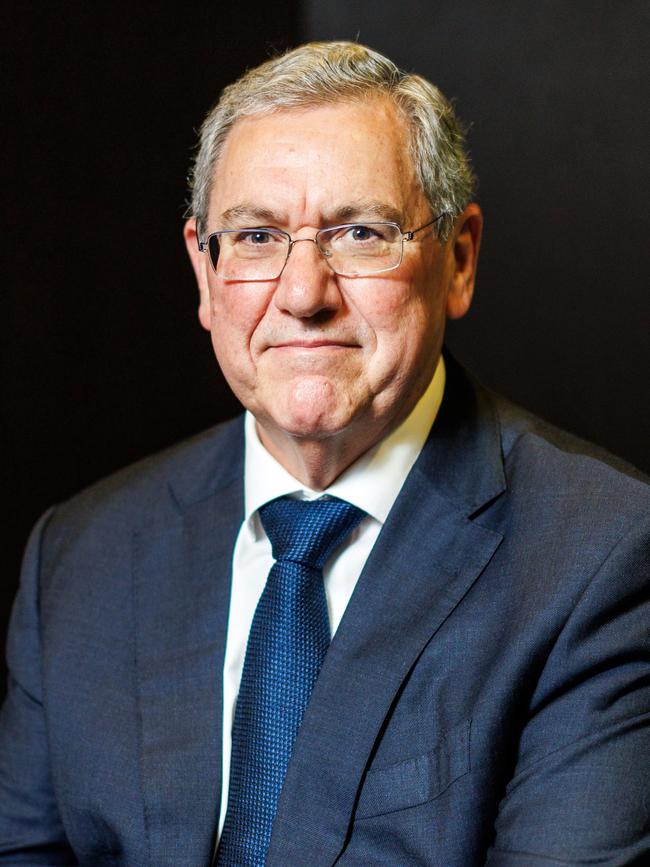ASIC’s scam alert list silent after 34,000 ripped off
One of the biggest scam syndicates to ever attack Australia - which fleeced victims out of more than $200m - is almost invisible on the corporate regulator’s investor alert list.

One of the biggest scam syndicates to ever attack Australia is almost invisible on the corporate regulator’s investor alert list.
The Australian Securities & Investments Commission has failed to include on the alert list a warning about websites associated with the international scam syndicate that fleeced 34,000 Australians out of more than $200m, searches by The Australian found.
German police sent letters to victims in that country naming websites Infinity CapitalG, Topmarketcap, Richmondsuper and Iron Bits as being used by the fraudsters in cryptocurrency scams, promoted on Facebook and elsewhere online using fake celebrity endorsements.
None of the websites came up in a search of ASIC’s online “Moneysmart” alert list on Monday, and nor did numerous others known by The Australian to be associated with the syndicate.
Scam-demic: you're the prey

Myanmar scam ties to SE Asia kingpins
A new report outlines a transnational network of businesses built by the Myawaddy Border Guard Force in Myanmar that protects and profits from Chinese criminal syndicates operating online scam centres.

How Asia’s brutal online scam factories reel in Aussies
Chinese-run ‘scam universities’ are training enslaved workers how to fleece Australians out of their life savings. Inside their walls, a modern horror story is unfolding. WARNING: Graphic content

Aussies ‘kept in dark’ over mass scam network
A crime syndicate used scam ads featuring celebrities including Eric Bana to fleece thousands of Australians out of $200m – and ASIC is accused of failing to protect victims.

‘I don’t want her to leave me’: Savings lost to this Facebook scam
A former Victorian real estate agent has been unable to bring himself to tell his wife that he lost $183,000 to scammers. Now he’s speaking out in the hope his story warns others.

ASIC silent on scam which ripped off 34,000 Aussies
One of the biggest scam syndicates to ever attack Australia - which fleeced victims out of more than $200m - is almost invisible on the corporate regulator’s investor alert list.

AI rip-offs from Asia ‘terrifying’
Artificial intelligence is transforming the cyberscam landscape and governments are struggling to keep up.
The new concerns come as the Albanese government said on Monday it had called for ASIC to explain why it didn’t contact and warn victims of the scam, following revelations in The Australian that German police gave the regulator a comprehensive database of evidence in June last year.
The discovery ASIC had not taken the minimal step of updating its alert list with websites associated with the syndicate will likely increase pressure on the agency over its handling of the case and its approach to relentless targeting of Australians by organised crime gangs offshore.


“We are determined to keep people safe from scammers and our Australian authorities have a key role to play,” Assistant Treasurer Stephen Jones said.
“The government has sought an explanation from ASIC as to why an alert was not sent to victims, including whether there were legal barriers. We will wait to receive a response before commenting further.”
Opposition home affairs and cyber security spokesman James Paterson called on ASIC to detail its handling of the case and said scam victims should be notified where possible.
“Australians deserve an explanation for what they (ASIC) knew, when they knew it, and what they did about it,” he said. “If government agencies and officials become aware, I think there should be a positive obligation, where they can, where it’s feasible, to contact people.”

Investment scams were often “not just a one hit loss”, and involved the theft of money over time,” Mr Paterson said.
“The earlier people know that they are a victim of what is a scam, the better steps they can take to protect themselves from any further loss.”
He said Australia didn’t have “the same well-oiled operational and policy responses as we have for other crime types”. Policy tools that were in place were not being effectively used, he said.
A crime network operating out of Serbia used mass social media advertising campaigns to draw people into fraudulent cryptocurrency schemes, with evidence of the theft of €350m ($568mm) worldwide, The Australian revealed on Monday. It is still active.
Australia was by far the most affected country, making up more than one-third of the 90,000 victims from 90 countries. There were 14,000 victims in Canada and 13,000 in Europe.
Files shared by German police with ASIC included victims’ names, phone numbers, emails, physical addresses, identity documents, notes on their background, and total losses. Scammers’ names and aliases in each individual case were also provided.
German police said it sent the database for the purpose of warning victims they had been dealing with a crime group and were at risk of greater losses.

Australians are known to have reported having money stolen from three of the four websites named in the German police letter to victims in that country: Topmarketcap, Infinity Capital G and Richmondsuper.
A search by The Australian of ASIC’s investor alert list for names of numerous other websites associated with the fraud syndicate came back blank, with the exception of three that were flagged on the list, including York CG.
ASIC says its alert list is “provided as a warning to potential investors and is regularly updated”.
An ASIC spokesman said on Monday the matter “involves numerous persons and entities of interest to ASIC and we are actively investigating”.
He added: “An investor warning was published on the Moneysmart website in June 2020 in relation to ‘York CG’, one of the scam crypto ‘trading companies’ identified in our investigation.
“The investigation is complex and has been under way for some time. It has involved co-operation with other Australian and international authorities. The investigation is continuing and we are not able to comment further at this time.”
Australian victims of the Serbian scam operation include a 61-year-old Perth carer looking after her mother with dementia who had $250,000 stolen. An 80-year-old retired Brisbane businessman was defrauded of $3m, and a 63-year-old retired Brisbane electrician lost $1.6m.
ASIC chair Joe Longo declined to comment on the handling of the case when questioned on Sky News, but said he was aware of investigations into the syndicate.




To join the conversation, please log in. Don't have an account? Register
Join the conversation, you are commenting as Logout